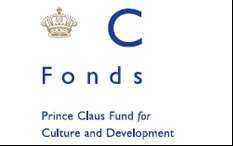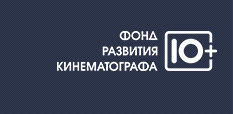| 27.03.2021 00:00 |
|
goEast: Symposium "Unveiling Central Asia"
Dates of the festival: 20-26.04.2021
Format: online
Place: Wiesbaden, Germany
UNVEILING CENTRAL ASIA – Following the establishment of the Soviet Union in 1922, the regions of Central Asia attracted the attention of the government as it sought to civilise the “wild” lands and their – often illiterate – people in the new lands. Cinema was the perfect tool. Such efforts were captured in documentaries, or “kulturfilms”, such as Vladimir Erofeev’s PAMIR. ROOF OF THE WORLD (Krysha mira, USSR, 1927) and Viktor Turin’s TURKSIB (USSR, 1929). The USSR played out its role as coloniser, bringing progress and liberal values to a region with a largely nomadic and Muslim population. Especially the women of the Orient, suppressed in the eyes of the Soviet regime in feudal societal structures, were encouraged to drop their veil and participate in industrialisation. Yet these modernising campaigns and emancipation efforts often met with local resistance, as other films will show.
After WW2, the national film studios often served as launch pad for young filmmakers from Moscow and Kyiv and carried the imprint of Soviet cinema. Such films address the conflict between modernity and local tradition, between Soviet belonging and national identity, as for example Andrei Konchalovsky’s debut feature FIRST TEACHER (Pervyi uchitel’, Kyrgyz SSR, 1965), based on a novella by Chingiz Aitmatov and made at Kirgisfilm. Soon, national studios would return to the theme of Soviet liberalisation in their own national perspective, such as Khodzhakuli Narliev’s WHEN A WOMAN SADDLES A HORSE (Kogda zhenshchina osedliaet konia, Turkmen SSR, 1974).
Studios had to be restructured after independence, yet issues of progress and tradition remained important. In cinema, such returns to religious, social and cultural conventions clashed with liberal lifestyles, seriously or humorously. The conflict is first seen in the Kazakh New Wave but also in the look back at Soviet campaigns of the 1920s in Yusup Razykov’s ORATOR (Voiz, Uzbekistan, 1999), the role of bride-kidnapping today in Ernest Abdyzhaparov’s PURE COOLNESS (Boz salkyn, Kyrgyzstan, 2007), or breaking with traditional gender roles in Abai Kulbai’s SWIFT (Strizh, Kazakhstan, 2007). Saodat Ismailova’s 40 DAYS OF SILENCE (Chilla, Uzbekistan, 2014) weaves together memories of three generations of women, while Sharipa Urazbaeva reviews the impossibility for MARIAM (Kazakhstan, 2019) to survive in modern Kazakhstan without a husband. Yolqin Tuychiev’s 2000 SONGS OF FARIDA (Faridaning ikki ming qo’shig’I, Uzbekistan, 2020) takes us back to the past, in which the story of woman’s liberation unfolds before our eyes. Thus, the films here offer an insight into the changing attitude to tradition across the Soviet era, from revolution all the way to independence, and then up to the present day, revealing Central Asia’s shifting concept of national identity.
Own inf.
|



